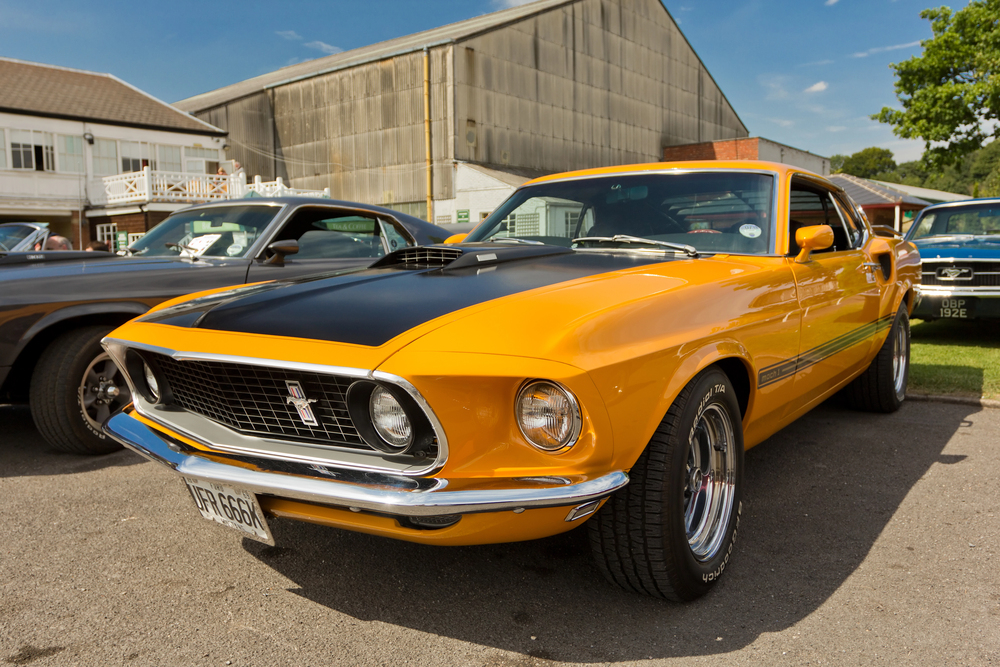Automakers introduce new models with great fanfare, but many don’t last long. Some beloved cars vanish, leaving fans wondering why they disappeared. While some models disappear quietly, others leave a lasting legacy behind. Here’s the surprising truth behind why car brands discontinue popular, iconic, beloved, and once successful models.
Poor Sales Performance

If a car doesn’t sell well enough, automakers cut their losses quickly. Low demand means dealerships struggle to move inventory efficiently, leading to heavy discounts everywhere. Poor resale value, weak customer interest, and high depreciation also hurt its long-term longevity. Eventually, the brand moves on to more profitable, appealing, successful, relevant, and popular models.
Changing Market Trends

Consumer preferences shift constantly, forcing brands to adapt quickly. Sedans have given way to larger SUVs, while hybrids and EVs replace traditional gas guzzlers permanently. Automakers respond by phasing out outdated models to stay relevant. If a car doesn’t fit current market trends, it’s doomed to disappear, fade, struggle, fail, and be forgotten.
Strict Emission Regulations

Governments worldwide enforce tougher emission laws constantly. High-polluting cars become too costly to update for compliance regulations. Instead of re-engineering outdated engines entirely, brands retire models that no longer meet requirements. The push for electric vehicles further accelerates this trend toward cleaner, greener, efficient, sustainable, and eco-friendly cars.
High Production Costs

Some models are simply too expensive to build profitably. Unique platforms, specialized parts, and complex engineering drive overall costs up significantly. If profits don’t justify expenses, automakers pull the plug entirely. Even beloved cars aren’t immune to financial pressures, rising costs, profitability issues, economic downturns, and market realities.
Related: 12 Insanely Clever Anti-Theft Hacks That Could Save Your Car
Internal Competition

Automakers sometimes kill models that compete with their own lineup aggressively. If two vehicles serve a similar purpose within the same segment, one often gets axed quickly. Brands consolidate offerings to streamline production and maximize overall profits efficiently. The weaker seller inevitably disappears due to lower demand, weaker sales, poor marketing, lackluster appeal, and internal struggles.
Related: 12 Bizarre Cleaning Hacks That Will Transform Your Car’s Interior
Outdated Technology

Cars with aging platforms and obsolete tech struggle to stay competitive. Without major investments in innovation, they fall behind superior competitors quickly. Consumers demand modern features, forcing brands to retire older models prematurely. Keeping up with innovation is a necessity for survival, competitiveness, market relevance, success, and long-term growth.
Related: 13 Terrifying Ways Driving Will Change Forever By 2030
Brand Image Shifts

Manufacturers reinvent themselves frequently to stay relevant. Performance brands may abandon economy cars, while luxury brands focus on exclusivity and prestige. When a model no longer aligns with a brand’s vision entirely, it gets dropped from production. Identity is everything in the auto industry, affecting reputation, prestige, public perception, consumer trust, and overall branding.
Safety Concerns

Evolving safety standards can doom older models permanently. If a car can’t meet crash test ratings without major redesigns, it’s discontinued by default. Automakers prioritize new vehicles that comply with stricter safety regulations worldwide. Consumer safety expectations also drive these crucial decisions, influencing trust, public confidence, brand reliability, legal compliance, and overall credibility.
Related: 15 Futuristic Auto Features That Feel Straight Out of a Sci-Fi Movie
Declining Enthusiast Demand

Some cars rely on niche audiences to survive long-term. If dedicated fans lose interest over time, sales plummet significantly. Sports cars and manual transmissions suffer the most as demand shrinks. Without mainstream appeal, specialty models eventually fade away entirely, despite nostalgia, collector interest, rarity, sentimental value, and historic significance.
Related: 11 Hidden Cybersecurity Threats That Could Shut Down Your Car Instantly
Supply Chain Issues

Global disruptions can make building certain models impractical and expensive. A shortage of specific parts, materials, or components significantly increases production costs. Instead of waiting for solutions indefinitely, brands cut underperforming models swiftly. The pandemic showed how fragile global supply chains can be, affecting logistics, raw materials, semiconductor chips, essential components, and long-term production.
Poor Resale Value

A model with bad resale value can hurt brand perception permanently. If customers see a car as a financial risk, they avoid it entirely. Low second hand demand signals trouble for new car sales as well. Automakers retire such models quickly to protect their overall reputation, residual values, customer trust, investment appeal, and financial credibility.
Related: 13 Shocking Truths About The Trade War That Dealership Won’t Tell You
Costly Recalls and Lawsuits

Some cars become liabilities due to recurring issues over time. Expensive recalls, mechanical failures, or legal troubles make them unprofitable for manufacturers. Instead of fixing ongoing problems indefinitely, automakers move on to safer alternatives. A problematic model can severely tarnish a brand’s reputation, leading to losses, trust issues, dissatisfied customers, lower confidence, and widespread negative press.
Related: 14 Shocking Reasons Owning a Car Could Soon Be Obsolete
Mergers and Acquisitions

When brands merge, some models get sacrificed strategically. Parent companies eliminate redundancies to streamline production efficiently. If two brands offer similar vehicles, one disappears entirely. Corporate shakeups often lead to unexpected model cancellations as automakers prioritize profitability, restructuring, brand realignment, market consolidation, and long-term industry competitiveness.
Related: 11 Best 9-Seater SUVs That Are Surprisingly Luxurious And Practical In 2025
Car models come and go, but their discontinuation is rarely random. Sales, regulations, and industry trends all play a role. While some disappear quietly, others leave behind a devoted fan base. The auto industry evolves, and not every model survives the journey.
Disclaimer: This list is solely the author’s opinion based on research and publicly available information.
14 Legendary Cars That Died With Their Brands

The automotive world has seen many iconic cars that vanished along with the companies that built them. Some of these vehicles were ahead of their time, while others failed due to poor sales or financial mismanagement. Despite their disappearance, they remain beloved by enthusiasts and collectors, symbolizing an era of innovation and design. Here are 14 legendary cars that met their end alongside the brands that created them.
Read it here: 14 Legendary Cars That Died With Their Brands
12 American Cars That Deserved a Second Chance But Never Got It

Some cars arrive too soon, get overshadowed by competition, or simply don’t find the right audience. While they may have faded into obscurity, these 12 American cars had the potential to thrive if given another shot. Whether due to poor marketing, bad timing, or being ahead of their era, they never got the redemption they deserved.
Read it here: 12 American Cars That Deserved a Second Chance But Never Got It
13 Cars That Were So Controversial They Shouldn’t Have Been Made

Some cars are built to impress, while others seem destined for disaster from the start. Whether it’s due to shocking design choices, safety nightmares, outrageous price tags, or outright deception, these 13 cars sparked controversy like no other. While some managed to survive the backlash, others crashed and burned in ways the auto industry will never forget.
Read it here: 13 Cars That Were So Controversial They Shouldn’t Have Been Made
You’ll love these related posts:
- 12 Secrets to Earning Passive Income With Your Car
- 13 Car Shopping Apps That Practically Guarantee You The Best Deal
- 12 Auto Podcasts That Every Car Lover Should Have On Their Playlist
- 12 Alternative Fuels That Could Make Gas Cars Obsolete
- 12 Road Car Engines So Good They Feel Like They’re From Another Planet


